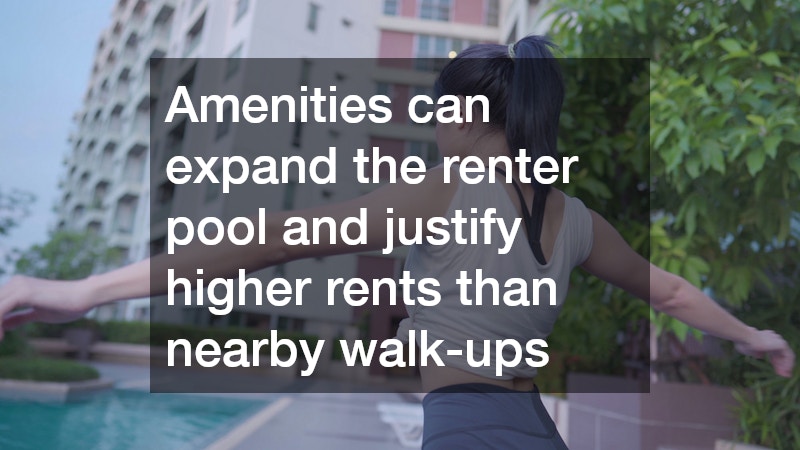If you’ve been eyeing a shiny city condo (or a beachy pied-à-terre) and wondering are condos a good investment, 2025 is a fascinating time to decide. Mortgage rates have eased from last year’s highs, inventory is slowly improving in many markets, and rental rules—especially for short-term rentals—continue to evolve. That mix creates both opportunity and risk. This guide breaks it all down in plain English so you can make a confident, numbers-first decision.
Quick Take: So… Are Condos a Good Investment in 2025?
Short answer: They can be, especially if you buy in a building with healthy reserves, manageable HOA fees, strong rental demand (long-term or allowed short-term), and you run the numbers conservatively. They’re less ideal if you need heavy appreciation to make the deal work, if the HOA is underfunded or litigious, or if your plan depends on short-term rental income where regulations are tightening.
Below, we’ll dig into rates, prices, HOAs, rental rules, and the specific scenarios where condos shine—or don’t.
What’s New in 2025 That Could Sway Your Decision?
- Mortgage rates dipped to their lowest level since October (as of mid-August 2025). That’s easing monthly payments for buyers compared with earlier this year.
- Existing-home sales remain soft, with regional variation—useful context for price discipline and negotiation.
- Short-term rental (STR) rules keep shifting—supply growth is slowing and local crackdowns are spreading, which can either protect pricing power for compliant hosts or cap your revenue if STRs are limited or banned.
Why Condos Can Make Sense Right Now

Lower total ticket vs. single-family homes
Condos often come with a smaller purchase price than comparable single-family homes in the same neighborhood. In high-cost metros or desirable urban cores, that can be your most affordable entry point into an A-location.
Amenities that boost rentability
Doormen, gyms, coworking lounges, package rooms, EV charging—amenities can expand the renter pool and justify higher rents than nearby walk-ups.
Lock-and-leave simplicity
HOA handles exterior maintenance and common areas. For investors who want a “cleaner” ownership experience (or who live out of state), that can be worth a lot.
Insurance and risk distribution
Building master policies can reduce your individual policy cost and simplify claims for common-area incidents.
The Flip Side: Condo-Specific Risks You Must Price In
HOA fees + special assessments
That “bundled” maintenance comes with monthly dues and occasional special assessments for capital projects (elevators, roofs, façade work). Dues also tend to rise over time; industry data showed rising HOA prevalence and fees through 2024, a trend many buyers expect to continue throughout this year. Factor steady annual increases into your pro forma.
HOA reserves and governance
Underfunded reserves often lead to surprise assessments. Poorly managed boards can delay fixes or get litigious—both can hit values and your stress levels.
Financing quirks
Some buildings (excessive commercial space, high investor concentration, pending litigation) can be non-warrantable, limiting loan options and pushing up rates.
Rental restrictions
Many HOAs cap the percentage of investor-owned units, set minimum lease lengths (e.g., 6 or 12 months), or ban STRs outright—even if your city allows them.
Are Condos a Good Investment If You Plan to Rent Them Out?
It depends on how you plan to rent:
Long-term rentals (12-month leases)
- Pros: Predictable income, fewer turnovers, less regulatory risk.
- Cons: Rent caps in some cities; slower rent growth in buildings with lots of similar units.
Mid-term rentals (30–90 days: travel nurses, consultants)
- Pros: Often allowed where STRs aren’t; higher gross than long-term in some markets.
- Cons: More management; check HOA minimum lease terms.
Short-term rentals (STRs)
- Pros: Potentially highest gross revenue, especially near events or tourism hubs.
- Cons: 2025 is the year of tightening rules in many places; STR supply growth is slowing, which can help pricing power where legal but caps expansion where restricted. Always verify city rules and HOA bylaws before underwriting.
What Do Interest Rates and Sales Trends Mean for Condo Buyers in 2025?
Rates
With average 30-year mortgage rates easing to the lowest since October by August 14, 2025, monthly payment pressure is improving versus earlier in the year. That helps cash flow and debt-service coverage for investors—still, underwrite at a buffered rate (e.g., +100–150 bps) to stay safe.
Sales momentum
National Association of Realtors (NAR) reported June 2025 existing-home sales down 2.7% month-over-month (with different regional moves). Softer volume can boost your negotiating leverage—especially for cookie-cutter units where sellers compete head-to-head.
How to Run the Numbers (With a Realistic Condo Pro Forma)
Start conservative. Your pro forma should assume:
- Vacancy: 5–8% (higher if seasonal or STR).
- Property management: 8–10% of collected rent (long-term), 15–25% for STR.
- Repairs/CapEx reserve: Even with an HOA, budget 5–8% of rent for in-unit repairs and wear-and-tear.
- HOA dues: Include annual increases (e.g., 3–6%); review minutes and reserve studies for looming projects.
- Insurance + taxes: Use current quotes and the latest millages; assume increases.
Back-of-napkin example (long-term rental):
- Purchase price: ₱10,500,000 (or $185,000 equivalent)
- Down payment: 20%
- Interest rate: 6.6%
- Monthly rent: ₱65,000
- HOA dues: ₱9,000
- Taxes + Insurance: ₱6,000
- Management: 9% of rent (₱5,850)
- Repairs reserve: 6% of rent (₱3,900)
- Mortgage (P&I, est.): ₱85,000
Monthly cash flow (rough):
Rent ₱65,000 − HOA ₱9,000 − T&I ₱6,000 − Mgmt ₱5,850 − Repairs ₱3,900 − Mortgage ₱85,000 = −₱44,750
In this hypothetical, the condo doesn’t cash flow. For it to pencil, you’d need either (a) a lower price, (b) higher rent, (c) lower HOA/expenses, or (d) a bigger down payment/lower rate. This is very common with condos in prime locations—your return may come more from appreciation than cash flow. Decide if that matches your strategy.
Are Condos a Good Investment If Your Angle Is Appreciation or Condo Flipping?
They can be—if you target supply-constrained neighborhoods with upcoming infrastructure improvements, buildings with unique amenities that set them apart, or areas undergoing urban revival. In condo flipping, timing is everything—buying at a discount in a slower sales market like parts of 2025 can create room for profit once demand rebounds. Just remember: appreciation isn’t guaranteed, so run your numbers as if you’ll need to hold longer than planned.
The HOA Deep Dive: What to Check Before You Buy
Documents to request and read (yes, actually read them):
- CC&Rs, bylaws, rules & regs (rental limits, pet rules, renovation rules).
- Latest two years of meeting minutes (clues about upcoming capital projects or disputes).
- Reserve study + balance (is the kitty big enough for the next 5–10 years?).
- Budget and delinquency report (how many owners are behind on dues?).
- Insurance declarations (Are coverage limits adequate? Flood/wind/hail for your area?).
Red flags:
- Litigation (especially building defects).
- High investor concentration if your loan requires warrantability.
- Aging mechanical systems (chillers, boilers, elevators) with no funded plan.
- Dues that look “too low” for the amenity level—often a sign of deferred increases.
Trend to note: In U.S. data through 2024, a larger share of listings carried HOAs and the median HOA fee moved higher—a headwind to cash flow that buyers should model forward into 2025 and beyond.
What About Short-Term Rentals—Still Worth It in 2025?

Maybe, but only if:
- The city allows STRs and the HOA permits them. (You need both.)
- You model seasonality and cleaning/management costs carefully.
- You can compete on experience (design, amenities, location).
Why the caution?
Industry research highlights slowing supply growth in 2025 (which can help rates where legal) and a patchwork of new regulations. Meanwhile, some communities are actively pushing for bans or strict caps. If your thesis relies on STR income, build a Plan B for long-term leasing.
Are Condos a Good Investment for First-Time Investors?
Often, yes, because:
- Lower price point can reduce entry risk.
- Professional management of common areas simplifies ownership.
- Amenity-rich buildings can make leasing easier.
But watch out for:
- HOAs that erode cash flow.
- Non-warrantable loans with higher rates.
- Underestimated CapEx inside the unit (appliances, HVAC air handlers, water heaters).
Starter strategy: Target “middle-market” buildings (not ultra-luxury), prioritize low HOA per square foot, and choose a layout that rents well (split bedrooms, in-unit laundry, a small den for WFH).
Are Condos a Good Investment for Retirees or Downsizers?
They can be fantastic for lifestyle and maintenance reasons. If income is a goal, consider renting a bedroom (where allowed) or buying a two-bedroom to improve rentability later. Just be sure the HOA has elevators, accessibility, and solid reserves—you don’t want surprise assessments on a fixed income.
The Location Factor: Where Do Condos Outperform?
- Transit-rich urban cores: Strong renter demand, consistent absorption.
- University/medical districts: Year-round tenant base (faculty, grad students, clinicians).
- Resort markets with clear STR rules: If legal, STR units can outperform—but they’re also the most exposed to regulatory risk.
- Emerging “15-minute city” neighborhoods: Shops, parks, and offices within a walk or bike ride.
Simple Checklist Before You Write an Offer
Financials
- Underwrote three scenarios: base, downside (−10% rent / +10% expenses), upside.
- Modeled HOA increases and a special assessment placeholder.
- Verified loan type and building warrantability.
Diligence
- Reviewed CC&Rs, minutes, reserve study, budget, insurance.
- Confirmed rental rules (city + HOA).
- Checked comps: rent and sale comps in the same building and nearby.
Property
- Assessed soundproofing, windows, HVAC age, and in-unit laundry.
- Verified parking, storage, EV charging, and internet options.
- Walked common areas at night and weekends (true noise and crowd levels).
Negotiation Angles That Work for Condos
- Ask for condo-specific disclosures (reserve balance, pending projects) early.
- Leverage DOM (days on market): Many near-identical units compete on price; point to comps to justify a discount or seller credits.
- Target quarter-end or pre-assessment announcements: If a big project looms, negotiate a seller credit equal to your expected share.
- Builder closeouts (new construction): Great time to ask for upgrades, closing cost credits, or rate buydowns.
Taxes, Depreciation, and Exit Planning
- Depreciation on the structure (not the land) can improve after-tax returns; talk to a tax pro about whether a cost segregation study makes sense.
- 1031 exchanges remain a powerful tool if/when you trade up.
- Exit timing: Condos can be more price-sensitive than detached homes in downturns because buyers compare similar units side-by-side. If you plan a sale within 3–5 years, be extra conservative on appreciation assumptions.
FAQs: Fast Answers to Common Questions
Are condos a good investment if I want passive income?
Yes—if you buy at a basis that supports positive cash flow after HOA dues, management, and reserves. Many investors accept modest cash flow in exchange for prime locations and lower hassle.
Are condos a good investment if I plan to house hack?
Often. A second bedroom can offset your payment significantly. Confirm roommate rules and minimum lease terms.
Are condos a good investment if I can only put 5–10% down?
Maybe, but condo fees and mortgage insurance can squeeze your margin. Consider waiting until you reach 15–20% down, or negotiate seller credits to buy down your rate.
Are condos a good investment for international buyers?
They can be a straightforward foothold in U.S. cities, but pay extra attention to financing availability, FIRPTA/withholding on sale, and HOA restrictions on rentals.
The Bottom Line: When the Answer Is Most Likely “Yes”
Choose the right unit in the right building with transparent, well-funded reserves, stable HOA dues, and clear rental rules—and make sure your numbers work even if rates nudge up or rents flatten. In 2025’s market, slight rate relief and patchy sales momentum can give savvy condo buyers a window to negotiate well and lock in quality assets.
